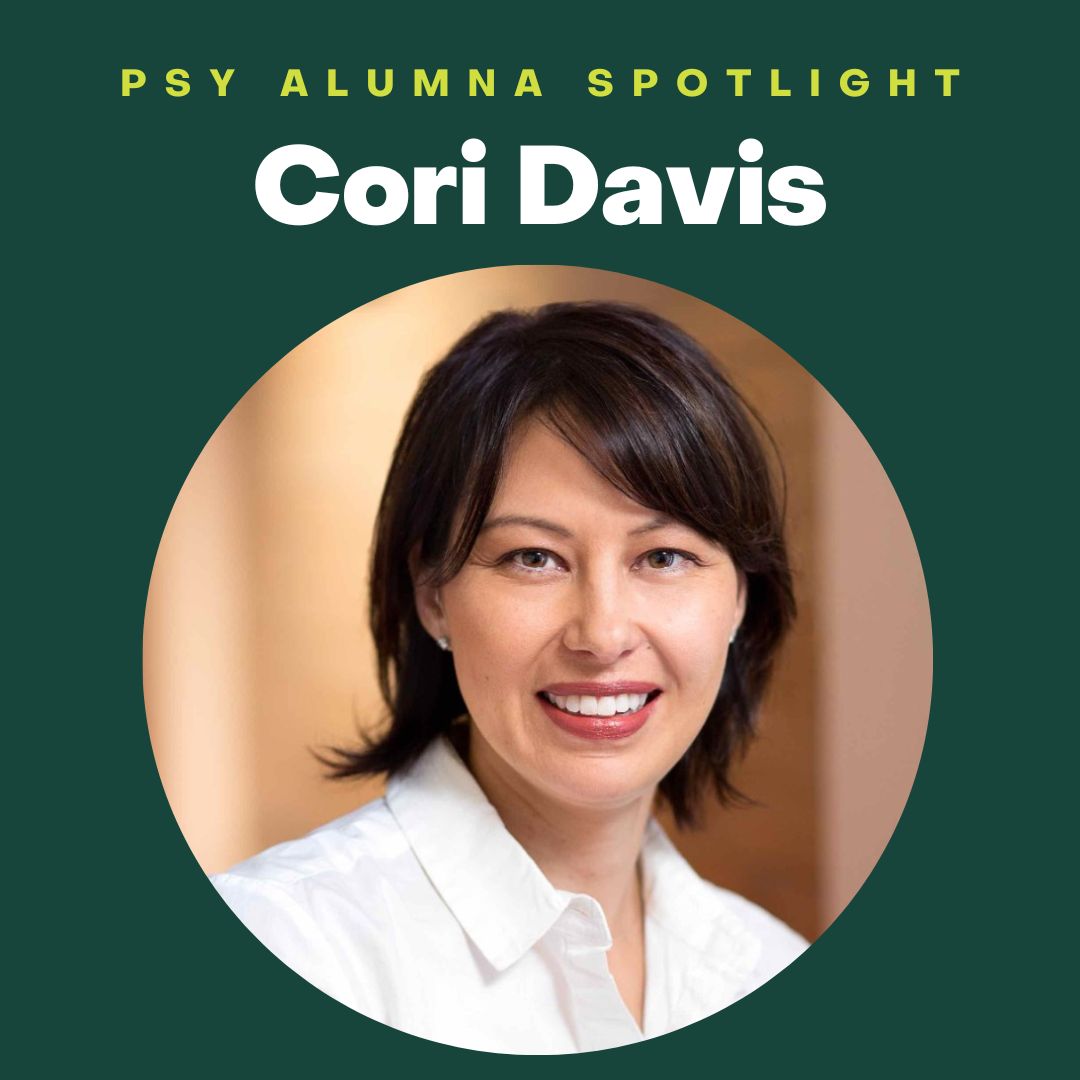Organizational Psychology’s Distinguished Alumni Speaker: Cori Davis
April 9, 2023 - Shelly DeJong, Jordan Holmes
 Dr. Cori Davis, Genentech’s Chief People Officer, presented at the Organizational Psychology program’s Distinguished Alumni Speaker Series on March 27th. Dr. Davis earned a Ph.D. in Organizational Psychology at Michigan State University. As Genentech’s Chief People Officer, she leads the strategy to foster an inclusive and inspiring environment where the company’s 13,500 employees can grow, thrive, and unlock their full potential to contribute to patients and society.
Dr. Cori Davis, Genentech’s Chief People Officer, presented at the Organizational Psychology program’s Distinguished Alumni Speaker Series on March 27th. Dr. Davis earned a Ph.D. in Organizational Psychology at Michigan State University. As Genentech’s Chief People Officer, she leads the strategy to foster an inclusive and inspiring environment where the company’s 13,500 employees can grow, thrive, and unlock their full potential to contribute to patients and society.
Dr. Davis sat down with us to talk about her role, how a background in psychology helps her in her job today, and what advice she would give to students entering the workforce soon.
You are the Chief People Officer for an organization with over 13,000 people! As an Organizational Psychologist, what are you focused on as a leader?
I'm focused on trying to be a catalyst and make sure I'm removing barriers for people. I strive to empower people to come up with ideas and implement them and try to reduce the “viscosity” in the system. We're trying to do this for all employees. How do we empower people to make changes where they see fit, ensure they feel heard, and that they're actively included and valued in the organization? That’s important to me.
Recently, I've been really focused on how we help reinvigorate the passion people have for the work that they do, and for the mission of our company. At Genentech, we help seriously ill patients. This is a mission that is deeply meaningful and motivating to people. But through the pandemic and social and political unrest in our country, people are feeling incredibly weighed down. Some people aren’t quite at that same level of pre-pandemic excitement about their contributions and impact. So how do we help get people excited again and find joy in their work, while still ensuring that they're able to balance their work and life?
We can get so much satisfaction from our work, learn so much, and establish these amazing relationships with people. If you think about how many hours a day we spend at work—it's an important part of our lives and we need it to be meaningful. So, that's really been on my mind lately.
How does your background in psychology inform or help you when you’re grappling with issues like that?
Generally, I think being curious about people is important in organizations whether you're in a job like mine or not. A good starting point is just being curious about people and really being open to understanding what is going on with them. What are they thinking, what are they feeling? What are they looking for? How are things impacting them?
More specifically, I’ve benefitted from the technical skills I learned at MSU, especially interpreting data. I learned how to think critically and consider models and frameworks for connecting the dots. I’m often told that I bring an objective, analytical, systemic, and strategic view to issues and I attribute that to my education at MSU. Being able to take in the information and honestly assess and analyze it has really helped me.
What do you love about what you do?
I love the variety. I love learning about different parts of our business. I've supported everything from research to sales and marketing to all of our corporate functions like finance and legal. They're all so interesting; they all have different cultures and phenotypes of people. We’re a complex organization in a complex business, and I find it really interesting. Trying to connect the dots across the organization in a way that maybe people haven't thought about is fun. I enjoy the challenge of it.
Genentech is looking at how best to use digitalization and automation, including AI (Artificial Intelligence). As someone in your position, overseeing a lot of people, could you share your thoughts on that?
For me, personally, AI is so exciting because there's just such an opportunity for it to accelerate our work. We're using it in the research part of our organization to model molecules before they go into the lab to assess the probability of success. If we can accelerate scientific discovery...that's huge! The threat of course is that AI will take away jobs. This is possible, and so we really need to get ahead in thinking about new skills and capabilities people will need so that we’re not caught on our heels.
What advice do you have for recent MSU alumni that you wish you had known earlier in your career?
Careers are a marathon, not a sprint. Your first job is highly unlikely to be your last...so just focus on learning, building skills, and delivering value and the opportunities will come!

